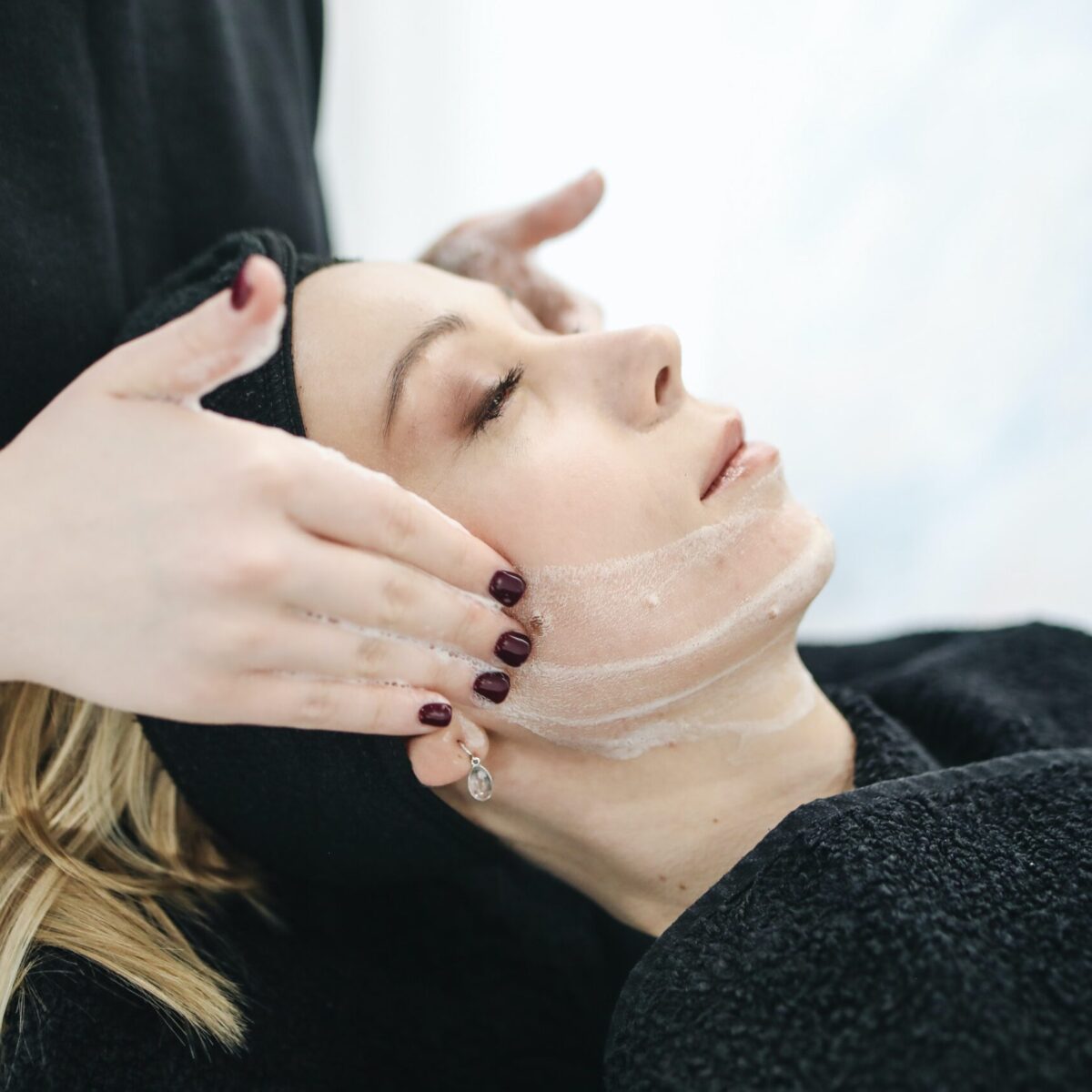
What treatments do dermatologists offer for acne?
Treatment with a good dermatologist will begin with an assessment of your acne. They should ask you about your current skincare routine, your lifestyle, your diet, your history with acne and what treatments you’ve already tried – if any. After the dermatologist physically inspects your skin, he/she will determine the type or types of acne you have. They will create a treatment plan that you can follow to clear your skin. Dermatologists offer many treatments for acne such as topicals, topical antibiotics, oral medications, aesthetician services, and other acne treatments.
Topicals
Topicals are medications you apply directly to your skin. A few include:
- Azelaic Acid: A naturally occurring acid a certain yeast produces and it offers antibacterial properties. It has pretty good efficacy for various types of acne. It can be prescribed to women who are pregnant or breastfeeding.
- Dapsone: If someone has inflammatory acne, dermatologists will recommend dapsone.
- Benzoyl peroxide: This medication prevents bacteria from growing on the skin and inside your pores.
Topical Antibiotics
- Retin A: popularized for enhancing the speed at which your skin creates new cells, preventing your pores from clogging up and developing into acne lesions. Topical retinoid gels or creams are often the first choices in acne treatments. Recent research suggests that retinoids have a strong ability to tackle inflammatory acne (pustules, papules and zits).
- Clindamycin: Works by slowing down or preventing acne by fighting bacteria.
Oral Medications
- Minocycline: People have been using this treatment for years, it stops bacteria and decreases inflammation
- Doxycycline: Typically used to treat mild to severe inflammatory acne. It’s an antibiotic prescribed for acne and rosacea and it’s recommended for individuals who have tried other unsuccessful treatments.
- Isotretinoin: Frequently used for severe acne as a last resort. This medication is best for those who have tried other treatments without success and for those with nodulocystic acne and acne scarring.
- Birth Control: Sometimes these hormonal medications can work by adjusting your body’s production of hormones that cause your skin to become oily.
Aesthetician Services
Additionally, when acne is more stubborn or acne scar removal is necessary, a dermatologist can perform or refer out certain treatments such as:
- Microdermabrasion: This technique requires a device to exfoliate the skin, eliminate the dead skin cells and eliminate debris from the surface of the skin. It improves acne scars and blackheads.
- Chemical peels: Using high-grade and/or natural chemical ingredients, chemical peels will eliminate dull skin cells. This creates smoother, firmer skin while tightening the pores.
- Extractions: For certain pimple treatments fluid might need to be extracted from the clogged pore using a certain tool. This helps to treat inflamed pimples, whiteheads and blackheads.
Other Acne Treatments Dermatologists Recommend
- Fraxel Laser Treatment: This treatment digs beneath the deepest layers of your skin, fading acne scars, repairing your deeper dermal levels and boosting collagen. The treatment can remove acne scars and you will notice improvements in about 3-4 sessions.
- Photodynamic Acne Treatment Levulan: This method combines a high-grade serum with a blu-u blue light. The lights destroy acne that causes bacteria and shrinks pores.
- Microneedling: By generating a sequence of microscopic holes in your skin, acne scars are removed, the growth of collagen is enhanced, elastin is stimulated and pore size is reduced. After the growth of the new collagen, the skin is left feeling firmer and smoother-looking.
Is seeing a dermatologist worth it?
It can be so frustrating when you try so many different options in hopes of clearing up your skin. Many people spend thousands of dollars testing out different products having high levels of optimism that the next one will finally get rid of the acne. The beauty of seeing a dermatologist is that it eliminates the guessing game around which products will be optimal. They will have the clinical experience to create a treatment plan. They will know not only which products are superior, but also specific lifestyle factors that could be playing an important role in the ongoing acne. Dermatologist appointments can be costly but can save time & money in the long term while providing lifelong changes for your skin health.
How long does it take a dermatologist to cure acne?
We live in a world where instant gratification is so common when treating the skin. We expect results to happen right away. However, our skin is not as fast as the internet. Given we’re providing our bodies with the right nutrients and maintaining a healthy lifestyle with a specific dermatologist-approved treatment plan, successful acne treatment can depend on many factors:
- The severity of the acne
- The compliance of the individual
- The lifecycle of the individual (reproductive years, perimenopause, menopause)
- The type of treatment protocol the dermatologist has prescribed
Lastly, some individuals will see results immediately after their first treatment but they can also notice gradual improvements over time.
If you find yourself having a challenging time understanding your skin health we’ve written an article that can help you understand which type of acne you’re experiencing.



